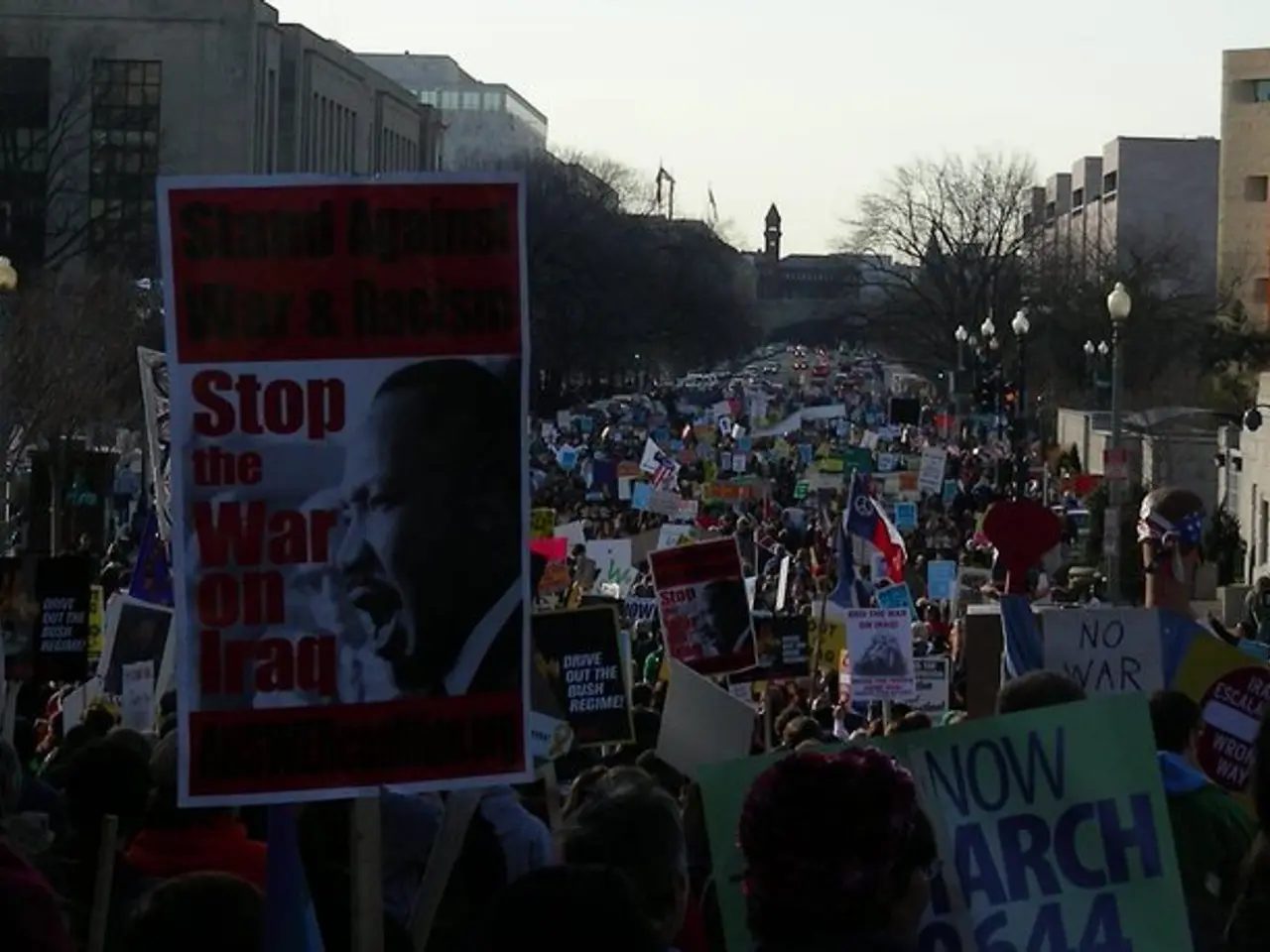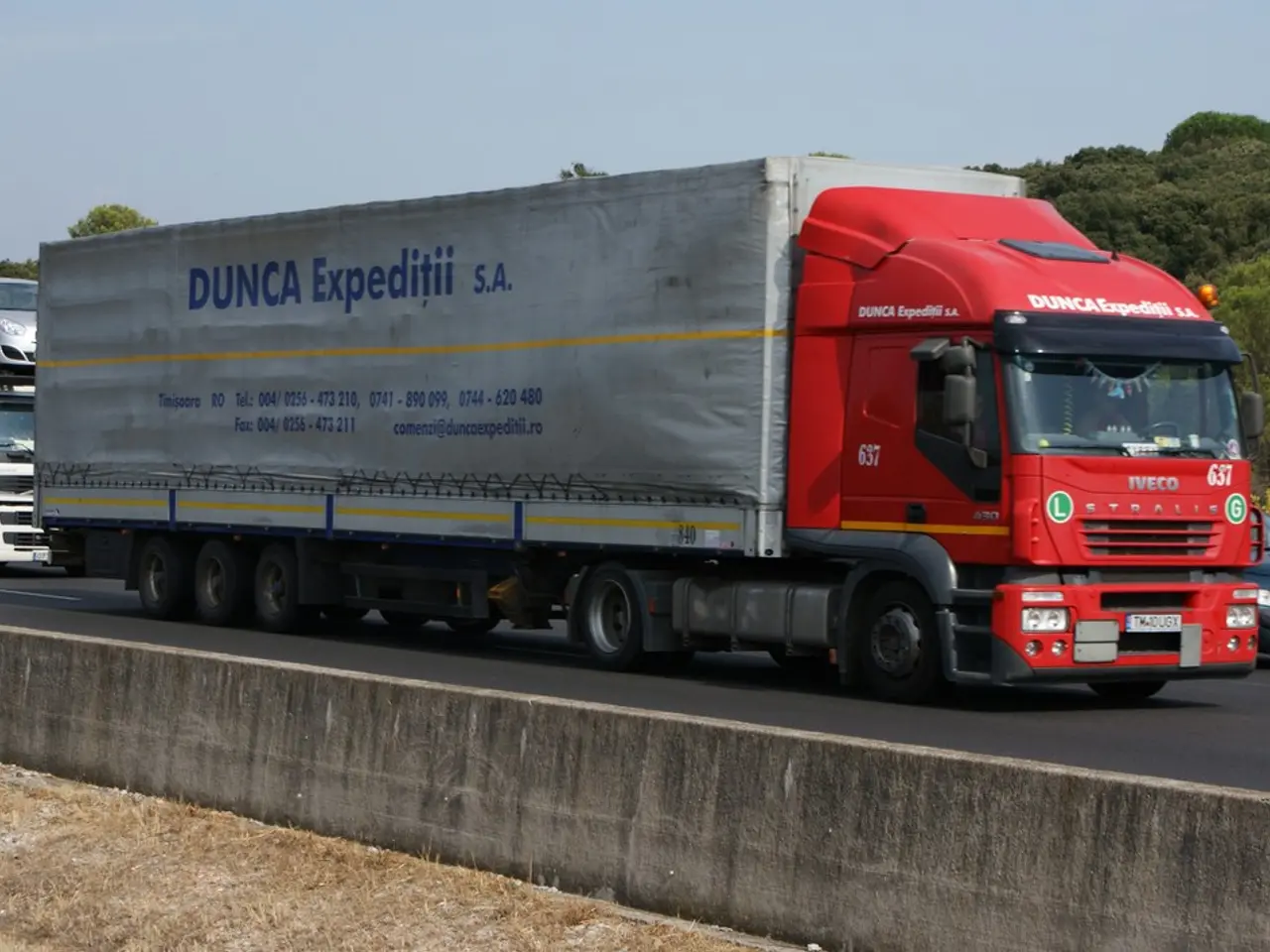Authorities Activate Monitoring of Expropriation in Congonhas Community (MPF Involved)
In the heart of Minas Gerais, Brazil, the Federal Public Prosecutor's Office (MPF) has launched an investigation into the controversial expropriation of lands traditionally occupied by the Santa Quitéria quilombola community. The investigation targets the actions of Companhia Siderúrgica Nacional (CSN), a major Brazilian steel company, amidst allegations of irregularities and potential violations of the community's constitutional rights.
The Santa Quitéria quilombola community, a traditional Afro-Brazilian settlement recognised for its cultural heritage and land rights, has been at the centre of a heated dispute over the expropriation of their land. Quilombola communities, protected by the 1988 Constitution and specific legislation, are entitled to preserve their territories.
The MPF's role is to ensure the protection of quilombola land rights and investigate public or private entities potentially infringing upon those rights. The investigation centres around concerns that the community was expropriated improperly, threatening their livelihood and cultural survival.
State deputy Beatriz Cerqueira (PT) has been vocal in her support of the Santa Quitéria community, activating the MPF to protect them against the eviction for a mineral waste pile by CSN. The deputy argues that the expropriation has been conducted in a violating manner, without reasonable time for the removal of goods, without dialogue, and with unilateral assessment of compensation, ignoring improvements and the financial counterproposal presented by the family.
The expropriation also violates a federal law that states expropriations for social interest must be carried out by the Public Power, not directly by private companies. Furthermore, the expropriation has been criticised for its potential environmental impacts, as the decree did not adequately evaluate these consequences.
Mr. João (74) and Dona Geralda (66), who were granted possession of their 7-hectare rural property, have been ordered to evacuate within 20 days. Their family home, surrounded by springs and native trees, is a symbol of the community and holds significant memories for the family. The tension caused by the expropriation has led Mr. João to seek medication for depression and anxiety.
The online petition against Decree No. 496, which authorised the expropriation, has gathered over 1,500 signatures in less than 20 hours. The petition demands the revocation of the decree, stating that it causes social and economic problems and violates the right to housing.
Justice officials, security personnel, and CSN employees visited the property last Tuesday with signs and chains for the gate, but retreated after Mr. João became ill. The petition also argues that CSN has only acquired 27 of the 30 properties amicably, leaving three families in limbo.
As the investigation unfolds, the MPF is expected to demand access to documentation from CSN, hold hearings with community representatives, and potentially recommend reparations or legal action if violations are found. Outcomes may include enforced consultations, land restitution, or monetary compensation.
The MPF has not yet responded to the deputy's office regarding the expropriation in Santa Quitéria. The deputy has requested an "urgent" meeting with MPF representatives and the affected community to ensure the protection and promotion of their rights. The fate of the Santa Quitéria quilombola community hangs in the balance as the MPF delves deeper into the investigation.
- The Federal Public Prosecutor's Office (MPF) is investigating the controversial expropriation of land from the Santa Quitéria quilombola community, a traditional Afro-Brazilian settlement, due to allegations of irregularities and potential violations of their constitutional rights by Companhia Siderúrgica Nacional (CSN), a major Brazilian steel company.
- The MPF's investigation involves concerns about the improper expropriation of the community's land, which threatens their livelihood and cultural survival, and violates federal laws that state expropriations for social interest must be carried out by the Public Power, not directly by private companies.
- The ongoing investigation in the environmental-science field is also important in assessing potential environmental impacts, as the decree did not adequately evaluate these consequences.
- The business, political, and general-news sectors are closely watching the outcome of this investigation, as it could set a precedent for the treatment of quilombola communities and their land rights in Brazil.




